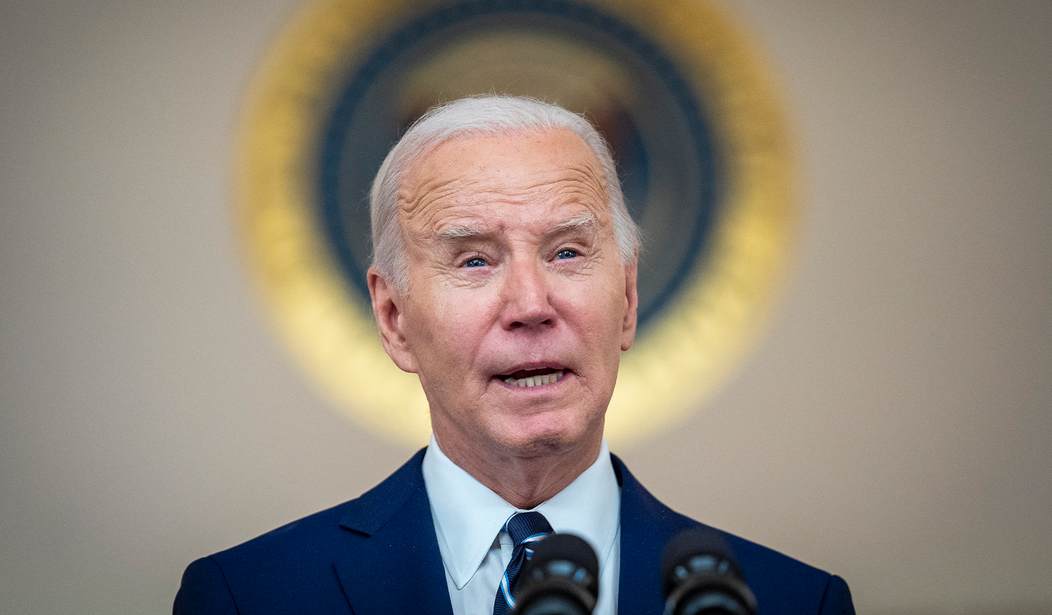Tax Day, the day on which individual income taxes are due, is the annual reminder of how much of our hard-earned money we lose to Uncle Sam. Income tax bills can be extremely painful for families already struggling to make ends meet. If a family gets a tax refund, it simply means that they gave the government an interest-free loan with money that could have gone toward food, clothing, housing, college savings, or retirement contributions.
While the government demands reporting accuracy and timely payments, they do not hold themselves to the same standards. Despite their inability to properly manage the hard-earned money they’ve already taken from you, the government plans to take and waste more of it. Spending reforms are long overdue.
An analysis of the President’s FY 2025 budget from the Tax Foundation found that extending various tax credits would “wipe out most, if not all,” of any deficit savings from increasing taxes. The analysis also found that the budget would make Americans poorer: GDP would decrease by 2.2%, wages would shrink by 1.6%, and the budget would kill 788,000 jobs. All the while, the federal government could expect to net another $2 trillion in tax revenue, taken right out of the pockets of hardworking Americans.
To add insult to injury, the GAO released another report showing that the federal government made at least $236 billion “improper payments” last year alone. Most improper payments were made by entitlement programs, giving money to people who were no longer eligible to receive these payments—including he deceased!
Even when the government does not count it as an “improper payment,” the government is still wasting your money. Take, for example, Medicaid. Under the current policy, the federal government, funds, on average, 71.3% of traditional Medicaid and 90% of the Medicaid Expansion created under the Affordable Care Act (ACA). This means the federal government provides more generous support to able-bodied adults covered under the expansion than to those who are most vulnerable and in the greatest need of care.
Recommended
Social Security, the single largest federal spending category, highlights another example of waste. Social Security has an average annual rate of return of 2%. If a worker had invested a portion of their paycheck into the S&P 500 instead of Social Security, he or she would have earned an average annual rate of return of just under 5%. Thanks to Social Security, Americans are leaving thousands of dollars in retirement savings on the table in foregone investments and, since the government isn’t a good investor, the solvency of the Social Security Trust Fund could run out of money in the next 10 years.
The wasteful spending drives up the country’s debts. With the national debt at $34.6 trillion (about $102,000 per person) future generations are facing massive tax burdens.
A constitutional amendment limiting spending growth will create fiscal discipline even when members of Congress don’t care about fiscal responsibility. This can be achieved through a tax and expenditure limit like the Colorado Taxpayers’ Bill of Rights Amendment, which limits spending to population growth plus inflation.
Another successful option is the Swiss Debt Brake. This fiscal rule limits spending growth to the average revenue increase over a multiyear period with tax rates set by the Swiss Constitution. It allows for the government to engage in some deficit spending during recessions, but it requires any borrowing to be paid back during times of prosperity. If enacted here, it would stop the government’s practices of borrowing just for the sake of financing current spending.
A fiscal commission is another viable solution. The recently proposed house and senate versions would require the commission to engage in budget reforms with the goal of stabilizing the debt-to-GDP ratio to no more than 100% within 10 years. Unfortunately, that proposed legislation appears to be going nowhere.
The need for reforms can no longer be ignored. Over the past four years, Americans have seen the value of their dollar shrivel up and now the government is coming to take what’s left. It’s time for the government to understand that it must solve its problems by fixing its own budget, not taking more out of family budgets.
Thomas Savidge is a research fellow at the American Institute for Economic Research. Follow him on X.com at @thomas_savidge.

























Join the conversation as a VIP Member